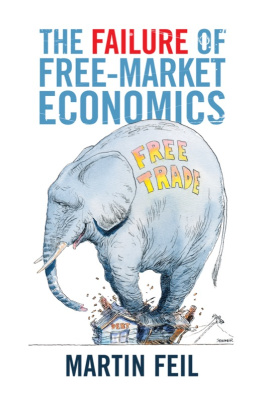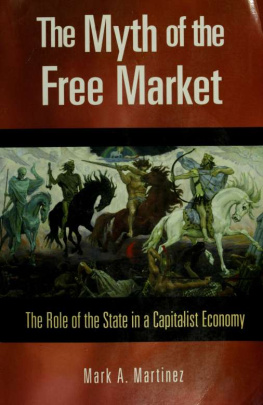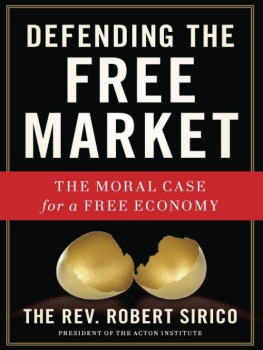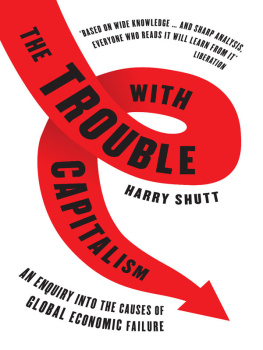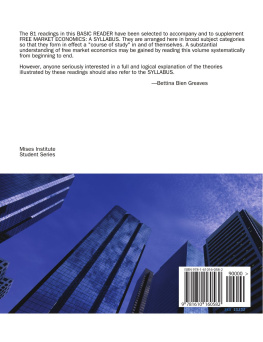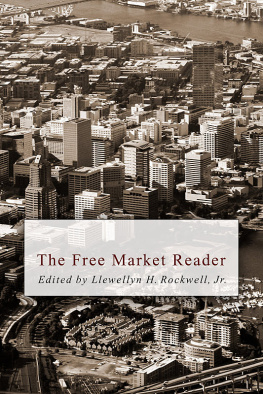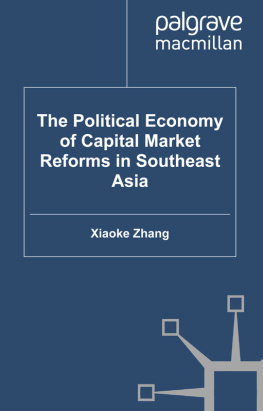
THE FAILURE OF FREE-MARKET ECONOMICS
Martin Feil was born in 1947 in Sydney. After attending university for 13 years (ten years part-time) as a scholarship boy, he got his first job in the Customs department, and then became the Industries Commissions youngest project director at the age of twenty-six.
He was eventually responsible for 11 major industry inquiries, before striking out on his own and working as an industry-policy consultant for the next 30 years. During that time he also owned trucks, warehouses, Customs bonds-stores, and container yards, and worked for the Australian Taxation Office as its only Australian independent expert on transfer pricing and profit repatriation by multinationals. He has been chairman of the Institute of Chartered Accountants Customs committee, and the institutes representative on the tax offices transfer-pricing subcommittee.
Feil has been writing op-ed pieces for The Age for many years, accompanied by illustrations by John Spooner, warning of the dangers of free-market economics. This is his first book.
To Ernie Sharkey, a first-rate economist, a legendary Customs officer, and an assistant commissioner who has helped me through my working life.
Scribe Publications Pty Ltd
1820 Edward St, Brunswick, Victoria 3056, Australia
2 John St, Clerkenwell, London, WC1N 2ES, United Kingdom
First published by Scribe in 2010
Text copyright Martin Feil 2010
All rights reserved. Without limiting the rights under copyright reserved above, no part of this publication may be reproduced, stored in or introduced into a retrieval system, or transmitted, in any form or by any means (electronic, mechanical, photocopying, recording or otherwise) without the prior written permission of the publisher of this book.
National Library of Australia
Cataloguing-in-Publication data
Feil, Martin
The Failure of Free-Market Economics
9781925113440 (ebook.)
1. Free enterprise. 2. AustraliaEconomic conditions.
330.122
scribepublications.com.au
scribepublications.co.uk
Contents
One :
Two :
Three :
Four :
Five :
Six :
Seven :
Eight :
Nine :
Appendix I:
Appendix II:
Introduction
Most politicians and commentators call the financial-sector implosion of 200709 the global financial crisis, but it is now well beyond the crisis point. Crises occur and are overcome; this crisis is an unmitigated, unresolved, and still not fully revealed disaster, despite deceptive comments to the contrary.
This global financial disaster has been in progress since 2005, and some of its worst effects are yet to come. American commentators expect that the number of US housing foreclosures will increase from 2.4 million in 2009 to as many as eight million between 2009 and 2013. Over seven million Americans lost their jobs in the two years to December 2009.
General Motors (Whats good for General Motors is good for America) has emerged, for the time being, from a humiliating bankruptcy, and even then only after having been rescued by the US taxpayer.
Alan Greenspan, the great global champion of (and now penitent for) free-market economics, said recently that the continued slump in US home prices was putting millions of borrowers at risk. He thinks that the banks have to raise more money.
The global financial disaster will ultimately impact directly on 20 million Americans. It will damage the lives of more than a billion people in industrialised nations they will lose substantial parts of their savings, their share values, their superannuation, their house values and, in many cases, their jobs.
In the poorer countries of the world, aid and charity work will be reduced. It is likely that the dishonest financial play by the American financial sector will result in the deaths of a large number of people.
This sounds shocking because it is. No amount of political, media, or finance-sector spin will eradicate the reality of the consequences of the global financial disaster.
Governments all over the world have been dealing with its catastrophic consequences since September 2008. Banks and many other managers of our money in deposits, superannuation, and shares are still only drip-feeding the extent of the disaster to the people who have lost the money. The big four Australian banks raised $90 billion in additional capital from the market during 200809, and went on to raise $10 billion more. This, of course, diluted the value of their existing shares.
Other major companies have also raised tens of billions of dollars to repair their balance sheets. Macquarie Bank raised $16 billion in 200809.
The financial disaster began with a massive financial scam involving low-documentation housing mortgages (that is, loans with no bank account, salary, or credit-card debt information provided by the borrowers), created initially by the US mortgage marketers and then sliced, diced, expanded, and sold by the great Wall Street houses of Lehman Brothers, Goldman Sachs, and Merrill Lynch, and by financial institutions such as UBS, Credit Suisse, and Citigroup to banks, pension funds, investment funds, superannuation funds, councils, state and federal governments, and infrastructure instrumentalities and all the other keepers of the worlds money.
For most of us, the unanswered questions are how and why the global financial disaster happened, how it came to Australia, and what needs to be done to repair Australias economy. The rest of the world needs to be repaired, too, but our first priority has to be fixing up the damage done to our economy and our society.
So far, Australia has apparently fared the best of virtually all developed countries in the global financial disaster. This may be partly a reflection of the governments failure to investigate the extent of the losses. In Australia, there are no televised parliamentary inquisitions asking the Reserve Bank of Australia, the Australian Prudential Regulation Authority, the Future Fund, and the banks how much we have borrowed and how much they have written off.
The Rudd government has been scathing about the oppositions attempts to talk down the economy. Negativity during a war is never well received by a government and for good reason. Negative consumer perceptions reduce consumption, and increase savings. This is precisely what governments dont want to happen in a recession.
Our superannuation funds are urging members to deposit more, and there is a general strategy on the part of government and the big companies to argue that we may not have missed a bullet, but that we have emerged better than any other country.
This story ignores the present and future costs of the disaster to the Australian people. It is the ultimate in media spin, designed to get people to take money from under their mattresses.
People have the right to know what happened during the economic events that have had and will have direct and severe financial consequences for them and their families. In some cases, the effects will be life changing.
The Australian governments response to the global financial disaster so far has been excellent, but there is a long way to go. We have escaped the full force of the disaster by a combination of good luck and good government management and intervention.
It is not over. This financial tsunami is an economic version of the 2004 Boxing Day tsunami. Its full force will be felt when institutions, companies, people, and governments have exhausted their resources and we should not simply sit and watch the next massive wave of losses and unemployment roll in. The epicentre of that wave is the United States, with its increasing unemployment levels and declining consumption. America is no longer the worlds consumer.
Next page
